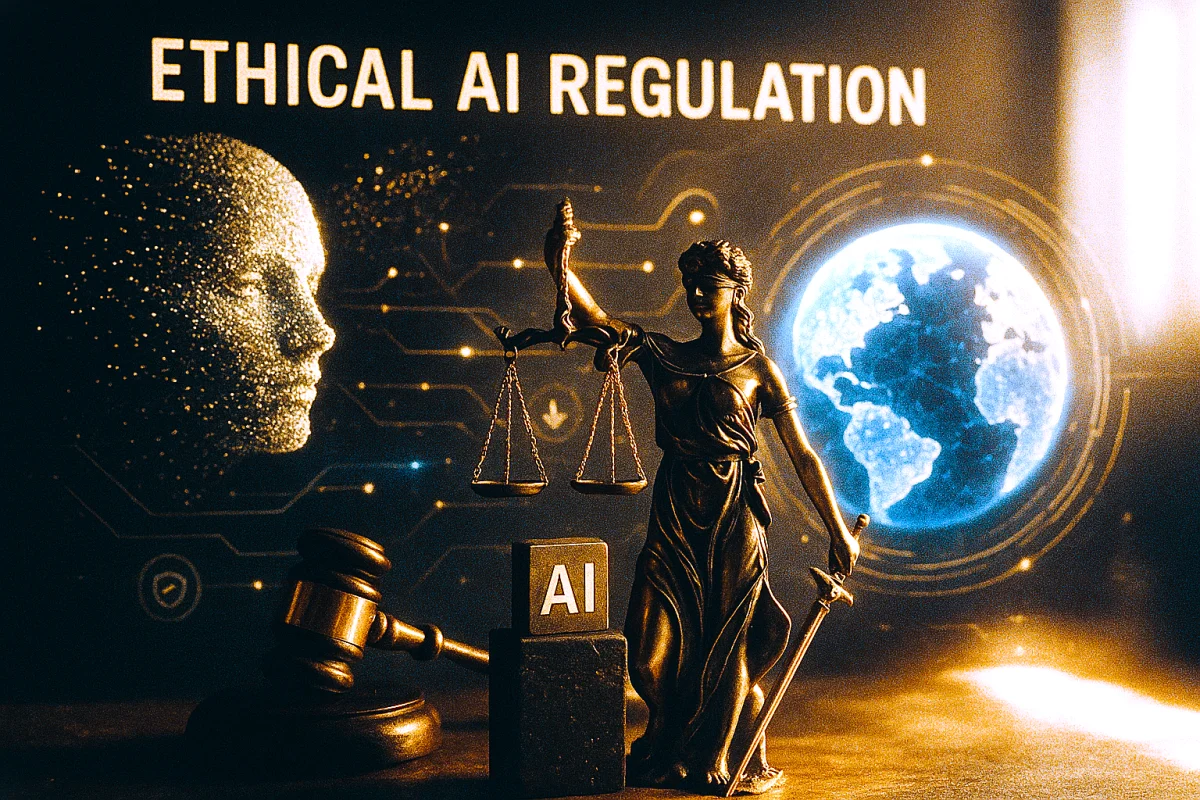Generative AI Ethics, Data Privacy, and Regulation
The rapid rise of Generative AI has unlocked countless opportunities but also raised serious ethical and legal challenges. When technology creates text, images, or videos, important questions emerge: Who owns the content? How can we protect users’ personal data? And what regulations are needed to ensure responsible use of AI?

Ethical Challenges
One of the most pressing issues surrounding Generative AI is ethics. Models trained on massive datasets often reproduce existing biases. These biases can appear as gender, racial, or cultural stereotypes. Ethical responsibility requires companies to find ways to minimize such biases and ensure fair outcomes.
Another critical question involves authorship. For instance, if AI generates a painting or music, should it be considered human work, the output of a program, or a collaborative creation? This question directly affects copyright law and the future of creative industries.
Data Privacy
Generative AI frequently relies on data that may include personal information. This raises serious concerns about privacy. For example, if a model has been trained on social media posts or public comments, could it unintentionally reveal private details?
This highlights the need for clear rules on data usage: where and how information is stored, how anonymization is applied, and how transparent the training process is. Regulations such as GDPR in Europe already demand strict data protection, but in the case of Generative AI, these standards often remain unclear and open to debate.
The Need for Regulation and Legislation
Although many countries are beginning to establish rules, a global standard has yet to emerge. The European Union is actively working on the AI Act, designed to tightly regulate high-risk systems. In the United States, regulation is more sector-specific, while Asian countries are striving to balance innovation with consumer protection.
A truly effective framework would require international agreements that set minimum requirements: transparency, safety, and fairness. Regulations should serve as the foundation for responsible AI use, not as obstacles to its advancement.
Conclusion
Generative AI is not only a technological shift but also a social and legal revolution. Without ethics, privacy safeguards, and effective regulation, its use could pose significant risks. Yet with the right frameworks in place, generative AI can become a safe and trustworthy tool that advances society responsibly.
✍ Article Author
- Registered: 26 July 2025, 15:34




 Silent Cat 🐾
Silent Cat 🐾